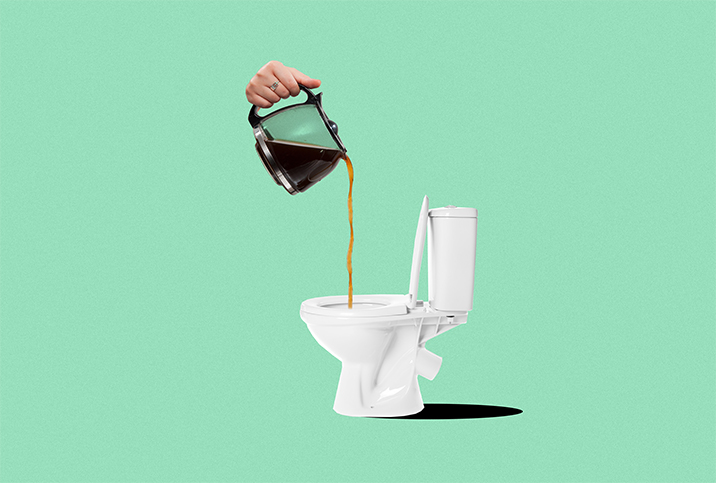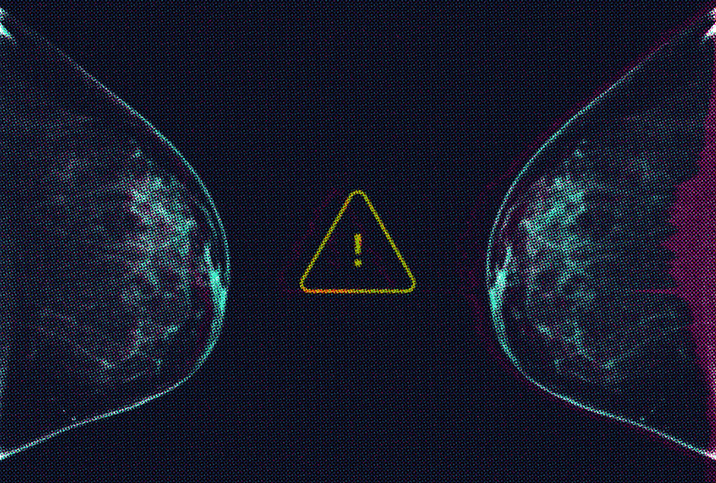Coffee and Breast Cancer: Time to Eschew the Brew?

You may have read a warning online or in one of those well-meaning emails: Drinking coffee can cause cancer—more specifically, breast cancer.
As of January 2021, more than 3.8 million women in the United States are either undergoing treatment for breast cancer or have a history of the disease.
In a nation where more than half of the women (66 percent) start their day with a cup of coffee and breast cancer is a leading cause of death, worrying about a possible link is understandable.
But is there any evidence to support this claim?
The link between coffee and cancer
In 2010, an organization called the Council for Education and Research on Toxics (CERT) sued about 90 coffee producers in California on the basis that the well-loved brew produced acrylamide, a chemical found in some foods and tobacco. At the time of the lawsuit, very little evidence existed connecting the chemical to cancer, but CERT demanded that coffee purveyors (including Starbucks) put warning labels on every cup.
That lawsuit was officially quashed in 2019 due to lack of evidence that exposure to chemicals in coffee posed a significant risk of cancer. But what do medical professionals have to say?
Health experts and researchers are quick to put the brakes on the allegation that coffee causes breast cancer. A statement issued by American Cancer Society researchers Susan Gapstur, Ph.D., and Marjorie McCollough, Sc.D., said, "[Coffee] drinking is not a cause of female breast, pancreas and prostate cancers."
The World Health Organization's International Agency for Research on Cancer declared that it could not find conclusive evidence that coffee and other caffeinated beverages caused or aggravated several types of cancer, including both invasive and in-situ breast cancer.
Health experts and researchers are quick to put the brakes on the allegation that coffee causes breast cancer.
Additionally, the International Agency for Research on Cancer Monographs Programme released the findings of a study which noted that coffee does not cause or aggravate various types of cancer, particularly breast cancer.
Kavita Jackson, M.D., an emergency physician in Maryland and a breast cancer survivor, stressed that while coffee may not be a contributing factor, lifestyle choices do have a bearing on an individual's risk of developing breast cancer.
"Lifestyle choices related to diet, exercise and other personal behaviors can affect your risk of developing breast cancer," she said. "For instance, we know that drinking alcohol can increase your risk."
A positive correlation?
As far as the science goes, research indicates coffee may actually lower the risk of certain cancers, including cancer of the breast, uterus, cervix and prostate, as well as those affecting the head, neck, colorectal region and liver.
A 2020 study on the association between coffee and breast cancer in more than 10,000 Spanish women suggested that postmenopausal women who consumed more than one cup of Joe a day had a lower breast cancer incidence than those who drank one cup or less per day.
While there are studies indicating that caffeine can reduce cancer risk, findings remain inconclusive, and additional research is needed to clarify why drinking coffee could decrease the possibility of breast cancer.
"There is no need to avoid coffee to reduce your breast cancer risk," said Crystal Fancher, M.D., a surgical breast oncologist and an assistant professor of surgery at the Saint John's Cancer Institute in Southern California. "Interestingly, [recent research] showed that those who drank coffee correlated to a lower breast cancer risk. But that doesn't mean you should start drinking it, either. A correlation does not always mean that one thing causes another...There may be other factors at play that put these women at higher or lower risk of breast cancer.
Research indicates coffee may actually lower the risk of certain cancers, including cancer of the breast, uterus, cervix and prostate, as well as those affecting the head, neck, colorectal region and liver.
"Things we do know that decrease your risk of breast cancer are staying active with 30 minutes of exercise five times a week, maintaining a healthy weight, not smoking and minimizing your alcohol intake," Fancher added.
It's clear that living a healthier (and tobacco-free) lifestyle reduces cancer risk.
"It is important to consider modifying factors we can control, like lifestyle choices, to reduce one's risk of developing breast cancer," Jackson said.
Jackson also emphasized the necessity of preventive screening.
"Regardless of your lifestyle choices, it is most important to discuss your health with a doctor and be familiar with your body so you can raise any concerns with your doctor," she said. "Appropriate screening with a mammogram leads to early detection of cancer, which directly translates to less death from breast cancer."
Research on the causes of breast cancer is still developing, but we do know that positive lifestyle changes can make a real difference. As for coffee, well, don't throw away the cup just yet.


















